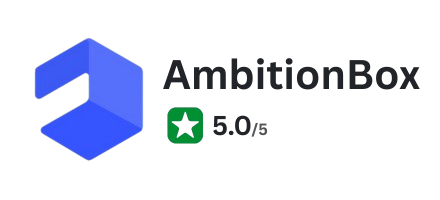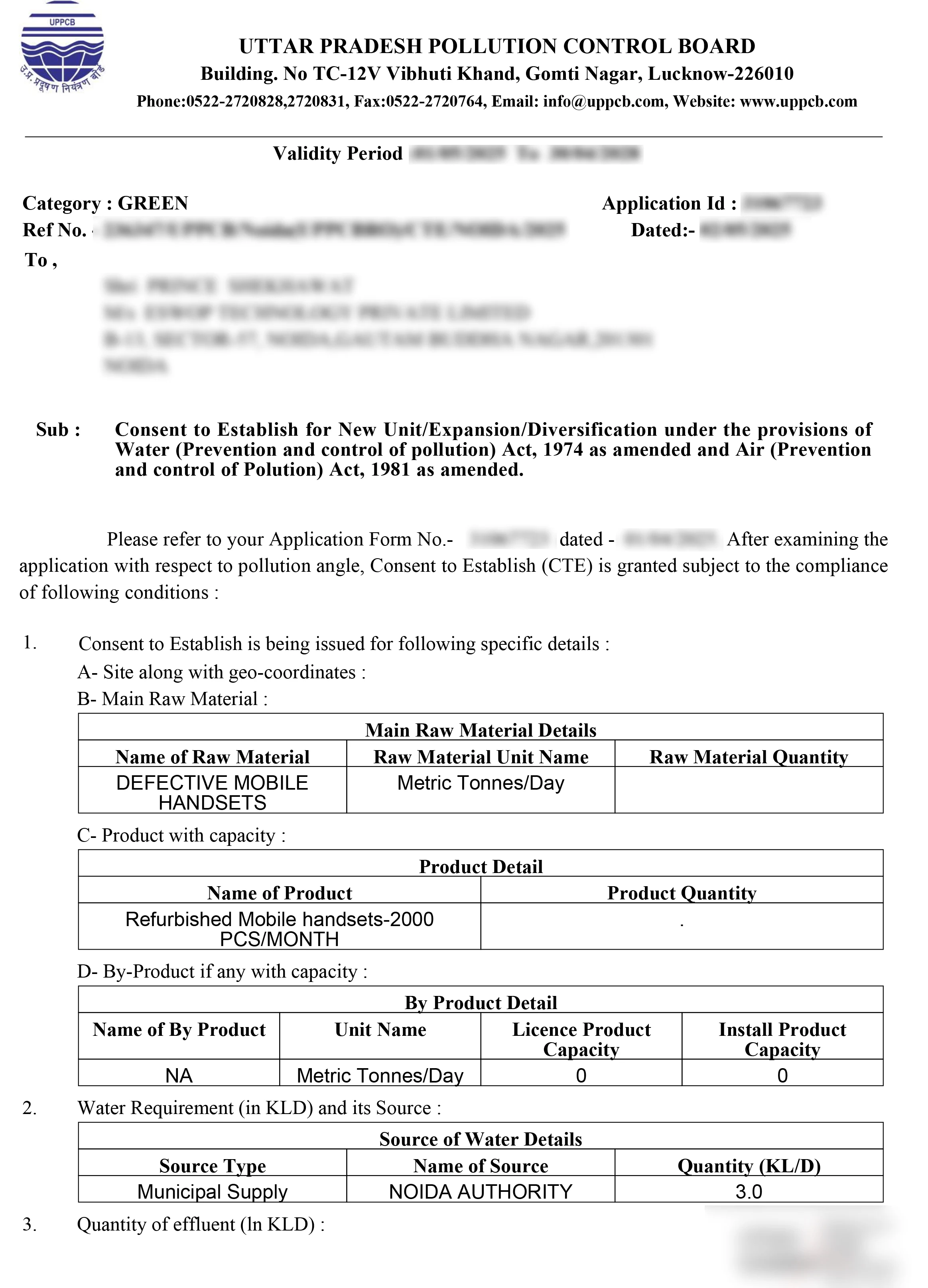
Get Instant Solution By an Expert Advisor
(4.8)
Businesses operating in Uttar Pradesh need to apply for Consent to Establish (CTE) and Consent to Operate (CTO) issued by the Uttar Pradesh Pollution Control Board (UPPCB) based on the following categories: RED, Orange, Green, and White. Connect Agile Regulatory Environmental Engineers to check out a detailed process about the registration process, documents, fees, timeline, benefits, etc.


10000 +
Projects Completed for Our Respected Clients.
15 +
Years Experienced Advisors in Indian Compliance.
98.9%
Project Delivery Ratio for Our Valuable Clients.
99.9%
Satisfied Customers All Over India.
The state of Uttar Pradesh has been endowed with a rich culture with abundant biodiversity and natural resources but has also been a major center of industrialization, leading to severe environmental pollution degrading the quality of land, water bodies, and air. Hence, to establish measures for environmental protection and enforce strict measures for its prevention, the Uttar Pradesh Pollution Control Board was formed in 1975.
This governing authority is primarily in charge of the approval & supervision of adherence to environmental regulations within the confines of the state of Uttar Pradesh. It is entrusted with the duty of overseeing, regulating, and upholding various other environmental legislation applicable within the boundaries of Uttar Pradesh. The authority operates through a network of twenty-five regional offices with its main headquarters located in PICUP Bhavan, Lucknow.
Consequently, businesses or industries seeking to initiate or modify operations within the boundaries of the state of UP shall be required to obtain an NOC including a Consent to Establish and Consent to Operate depending on the level of pollutants discharged by the establishment or industry. Additionally, the board has established research centres to conduct testing for air and water pollutants.

Under the pursuance of the legislations such as the Water (Prevention & Control of Pollution) Act 1974, Air (Prevention & Control of Pollution) Act 1981, Environmental Pollution Act 1986, etc. among others, the UPPCB issues directives to industries and manufacturing facilities when they are establishing their operations, intending to ensure a clean environment.
The principal objective of the UPPCB is to effectively manage and decrease air and water pollution within the state by establishing specific rules and regulations. These regulations serve as guidelines for manufacturing establishments offering supervision on the safe disposal of the pollutants released into the environment and ways to lessen them.
It gathers data from various sources and shares this information with the Industrial Siting and Town Planning Board. These activities assist the town planning board in making decisions about the location and setup of industrial units, especially in areas that are separate from residential zones.
Any business organization that undergoes modifications in its business operations, expansion, or similar changes is obligated to apply for a renewed consent or Consent to Operate:CTO from the Uttar Pradesh Pollution Control Committee. This requirement applies to a wide range of entities, including but not limited to:
Consent to Establish or CTE: UPPCB issues the Consent to Establish certificate to enable businesses in the state of Uttar Pradesh to commence new operations. This permit serves as a catalyst for pollution management, promotes the adoption of eco-friendly technologies, and ensures adherence to environmental regulations. The application process entails an evaluation of potential environmental impacts, the submission of a project report, and a feasibility assessment. Any failure to adhere to the CTE permit can lead to penalties or legal actions.
Consent to Operate or CTO: CTO certificate, also known as the Consent to Operate, is a certificate granted by the UP-Pollution Control Board, allowing business establishments in Delhi and its surrounding areas to operate without objection. It guarantees compliance with environmental standards and safety protocols. Industrial and commercial entities within the state of UP must obtain the CTO permit before commencing or continuing their operations, ensuring the implementation of adequate pollution control measures and compliance with environmental regulations.
The classification is determined by evaluating the potential pollution levels associated with different industrial sectors, taking into account the types of pollutants likely to be generated based on raw material consumption and manufacturing processes adopted. The categorization of industrial sectors has been outlined comprehensively as follows:

White Category (Score of 20 or less, Encompassing 192+ Existing Industries): The government has introduced the concept of the 'White Category' to identify the least polluting industries. These industries, due to their minimal environmental impact, do not necessitate a consent certificate. Industries falling within this category adhere to UPPCB regulations, with a pollution index ranging from 0 to 20, signifying them as the least polluting type of industry.
Green Category (Score of 21 – 40, Encompassing 91+ Existing Industries): Industries with a pollution index ranging from 21 to 40 are categorized as Green. These industries must obtain consent before establishing their operations. Since these are considered potentially polluting industries, they must secure both consent to operate and consent to establish before commencing activities.
Orange Category (Score of 41 – 59, Encompassing 83+ Existing Industries): The Orange category encompasses industries with a pollution index ranging from 41 to 59. Industries falling into this category are not allowed to commence operations without obtaining a consent certificate. Similar to the Green category, orange category industries must acquire consent certificates before establishing and initiating their industrial activities.
Red Category (Score of 60 or more, Encompassing 60+ Existing Industries): The Ministry of Environment & Forests designates highly polluting industries under the red category. These industries are also prohibited from operating in environmentally sensitive or protected areas. Any industry handling hazardous and noxious materials falls under the red category. Industries within this category are not permitted to operate within the jurisdiction of Uttar Pradesh. Some examples of Red category industries involve those dealing with dangerous chemicals, automobiles, mining, and biomedical waste. The Red category encompasses business sectors with a pollution index exceeding 60.
Promotion of Sustainable Progress: This involves achieving economic growth while simultaneously safeguarding the environment and ensuring social equity.
Conservation of Natural Resources: The UPPCB NOC also plays a role in safeguarding natural resources, preventing their depletion, and upholding the quality of water and air.
Efficient Management of Waste: Proficient waste management is crucial for environmental and ecosystem preservation. It supervises and enforces effective waste management techniques to encourage the reuse and reduction of various waste types.
Enhancing Public Awareness: It also educates the public by advocating for practices such as the use of paper bags, CFL bulbs, public transportation, and refraining from fireworks. These actions contribute to environmental improvement and enhance the quality of life for Delhi's residents.
Implementation of Energy-efficient Technology: Transforming workplaces into eco-friendly environments by adopting sustainable practices such as solar-powered lighting, transitioning to CNG, replacing incandescent lights with energy-efficient alternatives, and installing low-energy equipment.
Documents Required for Consent to Establish or CTE:
Documents Required for Consent to Operate:

Determine Industry Categorization: The initial step in obtaining UPPCB NOC involves ascertaining the industry's classification. UPPCB authority categorizes industries into four groups based on their potential for pollution: Red, Orange, Green, and White with every category holding its specific pre-requisites. In the case of the White category, applicants can submit documents online, and subsequently, an undertaking is generated.
However, for the green and orange categories, it is essential to verify if the site falls within an industrial area. If it does, the industry submits the documents through the UPPCB official website.
Complete the Application & Document Submission: Manufacturers must complete the application in the prescribed format, providing site details, registration certificates, and other relevant information. This application, along with the required documents and applicable fees, needs to be submitted.
Application Review: Once the application is submitted to the General Manager of the District Industries Center (DIC) and regional officials, it undergoes scrutiny in accordance with the specified guidelines.
Inspection Process: Following the review of the application by the authorities, an official conducts a field inspection at the site. Based on this inspection, an inspection report is prepared.
Issuance of Certificate: Subsequently, the inspection report is carefully examined. If it meets the established standards, the manufacturer is granted the Consent Certificate by the Uttar Pradesh Pollution Control Board.
When applying for a Consent to Operate, specific industries are required to pay testing fees for the analysis of their effluent, air emissions, and noise samples. Generally, manufacturing units have the option to pay the full consent fee for the entire prescribed period based on their category. However, the State Pollution Control Board :SPCB or Pollution Control Committee may permit them to apply for a shorter consent period under certain conditions, which may require justification. Additionally, some boards allow applicants to pay the CTO fees in installments.
Obtaining the UPPCB consent could be a bit challenging due to the complex process of the documents required and the processes involved. However, with the right amount of guidance and consultation, you could easily acquire the same within the prescribed time. At Agile Regulatory we are committed to helping budding entrepreneurs by enabling them to acquire business licenses smoothly and carry on their business.

Get Instant Solution By an Expert Advisor
(4.8)
Once granted the legal validity of the NOC depends upon the category of the industry. While the Validity of Consent to Establish varies from 1-5 years upon the time taken by the industry for its establishment, the Consent to Operate remains valid for a period of 5- 15 years as per the red, orange, and green categories of the industry and once expired, they are also eligible for renewal.
You need to get a CTE before building a new industry. To do this, submit the necessary documents to the regional office of the local State Pollution Control Board (SPCB).
After your industry is built and before you start operations, you must get a CTO from the local SPCB. This approval is valid for a certain time, so remember to renew it regularly. Again, submit the required documents to the regional office of the SPCB.
The CTO renewal is based on your compliance with the various standards set by the Pollution Control Board during the previous time.
Proven 4-step Process: Consultation, Documentation, Submission, and Certification.
Startups to large enterprises, we deliver end-to-end solutions business compliance needs.

What our customer says about us
Fantastic support from the team. Their expertise transformed our approach, driving remarkable outcomes. A must-have partner for businesses seeking effective consulting solutions. Highly recommended.

Lavkush Sharma
KTPL Instruments
Agile Regualtory delivers exceptional solutions. Their insightful guidance streamlined our processes and boosted profitability. Highly recommended for businesses seeking expert consulting services to thrive.

Nitin Mukesh
Justrack IOT
Impressed by Agile Regulatory's expertise. Their strategic insights and practical solutions have elevated our business operations. A reliable partner for effective consulting services. Highly recommended for growth-focused businesses.

Pradeep Varma
Coaire Compressor
Extraordinary consulting services. Their insightful solutions and dedicated team reshaped our business, driving remarkable improvements. Highly recommend it for transformative results.

Bharat Bachwani
Easy Polymer
Incredible experience with Agile Regulatory. Their innovative strategies and expert advice revitalized our business model, resulting in impressive growth. Highly recommend their exceptional consulting services.

Atul Jain
Tarus International
Top-tier consulting! offered strategic solutions that revolutionized our approach. Their deep expertise and personalized guidance made a significant impact on our success. Highly recommend their services.

Paramjeet Singh
Anchor Weighing
Agile Regulatory exceeded expectations! Their tailored solutions, expertise, and proactive approach led to remarkable results. Highly recommend for businesses seeking impactful and strategic guidance.

Anshul Rathi
AM Capacitor
Outstanding service! delivered targeted solutions with professionalism and expertise. Their insights elevated our business strategies, resulting in noticeable growth. Highly recommended for exceptional consultation.

Shekhar Maurya
Imaxx Pro Aquistic